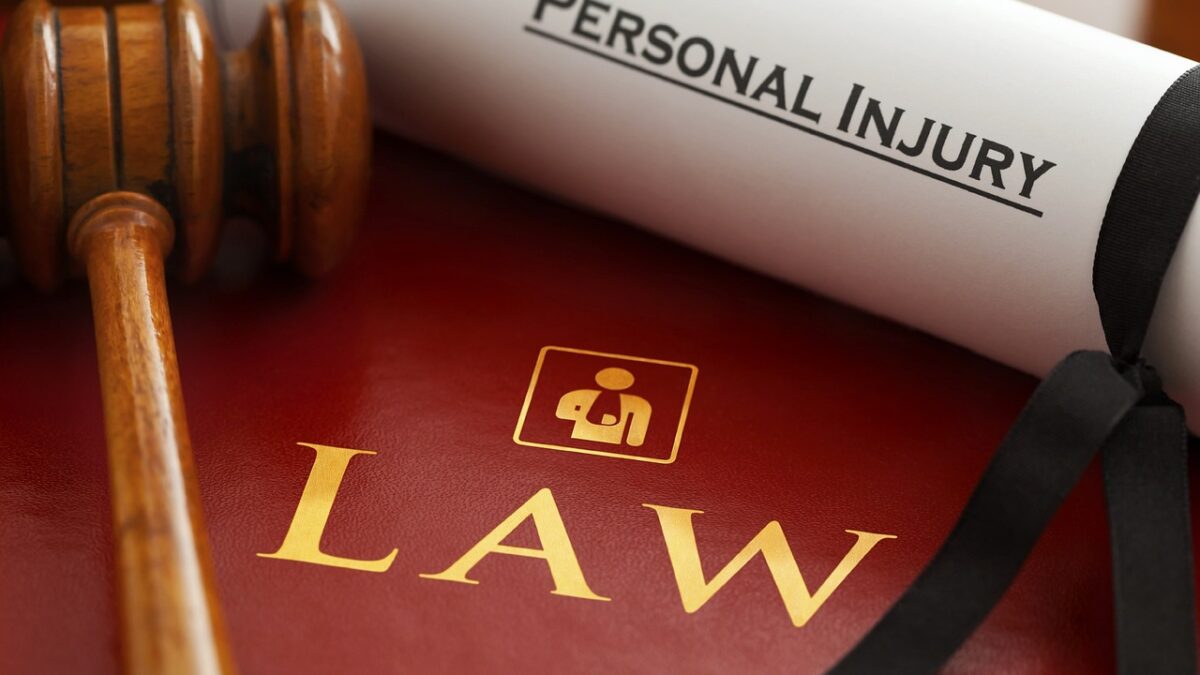
Understanding Auto Injury Cases and the Role of a Car Accident Lawyer
November 23, 2024What to Do If a Red Notice Is Issued Against You?
November 23, 2024Suffering a personal injury due to someone else’s negligence can be a life-altering event. Suddenly, you’re facing medical bills, lost income, and the emotional distress of coping with pain and recovery. In this vulnerable state, you need a skilled and compassionate advocate on your side. Choosing the right personal injury attorney can make a significant difference in the outcome of your case and your ability to rebuild your life. This article will guide you through the essential factors to consider when making this important decision, empowering you to find the best legal representation for your unique needs and navigate the challenges ahead with confidence.
Why You Need a Personal Injury Attorney
After an accident, you might be tempted to handle your claim independently, especially if the insurance company seems cooperative initially. They may offer a quick settlement, assuring you that it’s a fair resolution to your situation. However, the reality is that insurance companies are businesses, and their primary goal is to minimize their payouts, often at the expense of the injured party. They have teams of lawyers and adjusters working to protect their interests, and without experienced legal representation of your own, you may find yourself at a disadvantage in negotiations. You may be unaware of the full extent of your damages, including future medical costs, lost earning potential, and pain and suffering. An insurance company’s initial offer may seem tempting, but it often falls far short of what you truly deserve.
A personal injury attorney levels the playing field, ensuring your rights are protected and your voice is heard. They have the knowledge and experience to navigate the complexities of personal injury law, negotiate with insurance companies from a position of strength, and fight for the full compensation you’re entitled to. They understand the tactics used by insurance companies and can effectively counter them, ensuring that your claim is given fair consideration. A personal injury attorney can handle all aspects of your case, from gathering evidence and negotiating with insurance companies to filing a lawsuit and representing you in court if necessary. This allows you to focus on your physical and emotional recovery without the added stress of managing legal complexities.
Factors to Consider When Choosing an Attorney
Experience and Expertise
Look for an attorney with extensive experience in personal injury law, particularly in cases similar to yours. Experienced personal injury attorneys possess a deep understanding of the legal nuances, negotiation tactics, and courtroom procedures that can significantly impact the outcome of your case.
Track Record of Success
Review the attorney’s track record, including their success rate in securing favorable settlements and verdicts for their clients. Don’t hesitate to ask about their experience with cases similar to yours and inquire about their approach to handling such cases. A strong track record of success demonstrates the attorney’s ability to achieve positive results for their clients. While past results are not a guarantee of future outcomes, they can provide valuable insight into the attorney’s skills and effectiveness.
Communication and Accessibility
Effective communication is essential for a successful attorney-client relationship. Choose an attorney who communicates clearly, promptly answers your questions, and keeps you informed about the progress of your case. Accessibility is also crucial. You want an attorney who is responsive to your needs and available to address your concerns throughout the process.
Resources and Support
Personal injury cases often require extensive resources, including expert witnesses, investigators, and medical professionals. Choose an attorney who has access to these resources and can provide comprehensive support throughout your case. This may include medical experts who can testify about the extent of your injuries, accident reconstruction specialists who can analyze the cause of the accident, and financial experts who can calculate your economic losses. A well-resourced attorney can build a stronger case on your behalf and increase your chances of securing maximum compensation.
Fees and Payment Structure
Most personal injury attorneys work on a contingency fee basis, meaning they only get paid if they win your case. This allows individuals who might not otherwise be able to afford legal representation to access the justice they deserve. Understand the attorney’s fee structure, including the percentage they will take from any settlement or verdict, and any associated costs, such as court filing fees or expert witness fees. Make sure you are comfortable with the fee arrangement before signing any agreements.
Comfort and Trust
Your relationship with your attorney is built on trust and open communication. Choose an attorney you feel comfortable with, someone you can trust to represent your best interests and advocate for your rights effectively. This is a personal decision, and it’s important to find an attorney who you feel understands your needs, listens to your concerns, and makes you feel confident in their ability to handle your case.
Red Flags to Watch Out For
When choosing a personal injury attorney, be wary of attorneys who exhibit certain red flags. These may include attorneys who pressure you to sign a contract immediately, before you’ve had a chance to fully consider your options or consult with other attorneys. Be cautious of attorneys who guarantee a specific outcome, as this is unrealistic and unethical. No attorney can guarantee a specific result, and those who make such promises may be more interested in securing your business than in achieving the best possible outcome for you. Check for any history of disciplinary actions or complaints against the attorney. This information is typically available through your state’s bar association and can provide insights into the attorney’s ethical standards and professional conduct. Be wary of attorneys who seem disinterested in your case or your concerns. You want an attorney who is attentive, responsive, and genuinely invested in helping you achieve justice.
Conclusion
Choosing the right personal injury attorney is a crucial step in protecting your rights and securing the compensation you deserve after an accident. By considering factors such as experience, track record, communication, resources, fees, and your overall comfort level, you can make an informed decision and find an attorney who will be a strong advocate for your needs. Remember, experienced personal injury attorneys possess the knowledge and expertise to navigate the complexities of the legal system and fight for your best interests, allowing you to focus on healing and moving forward with your life. Don’t underestimate the importance of finding the right legal representation during this challenging time.



